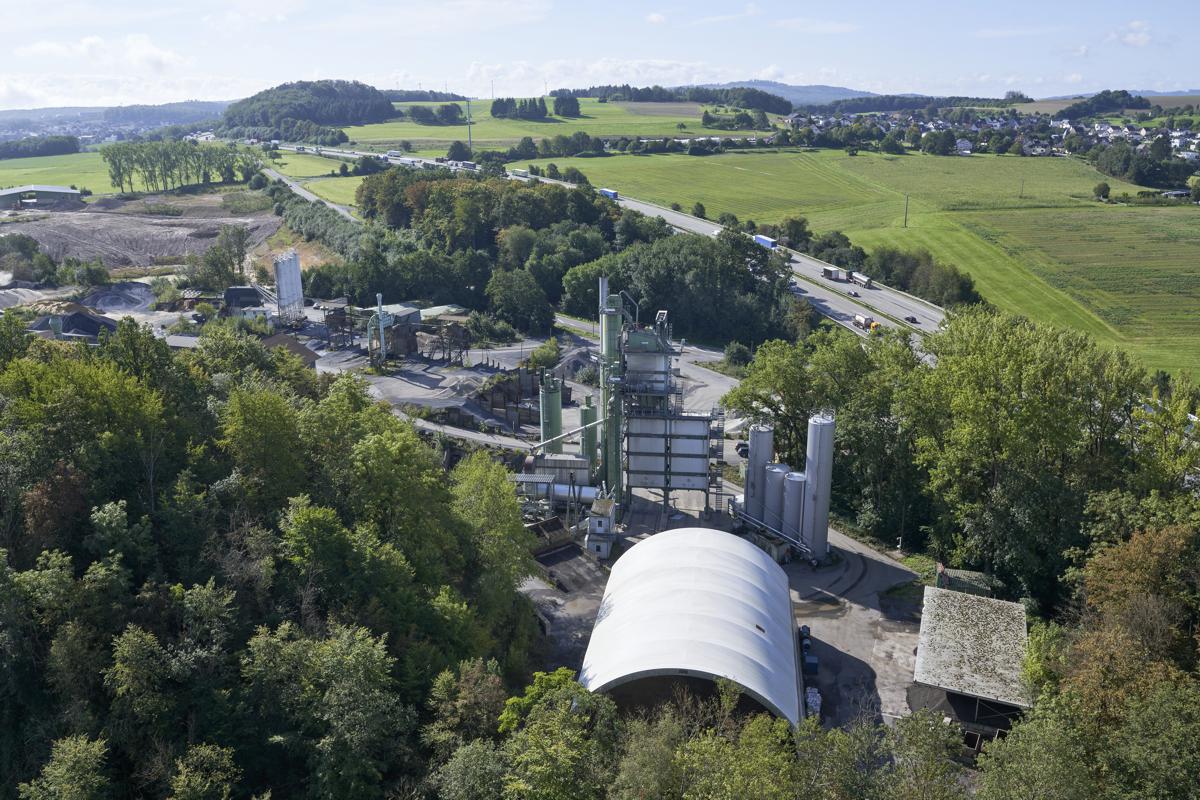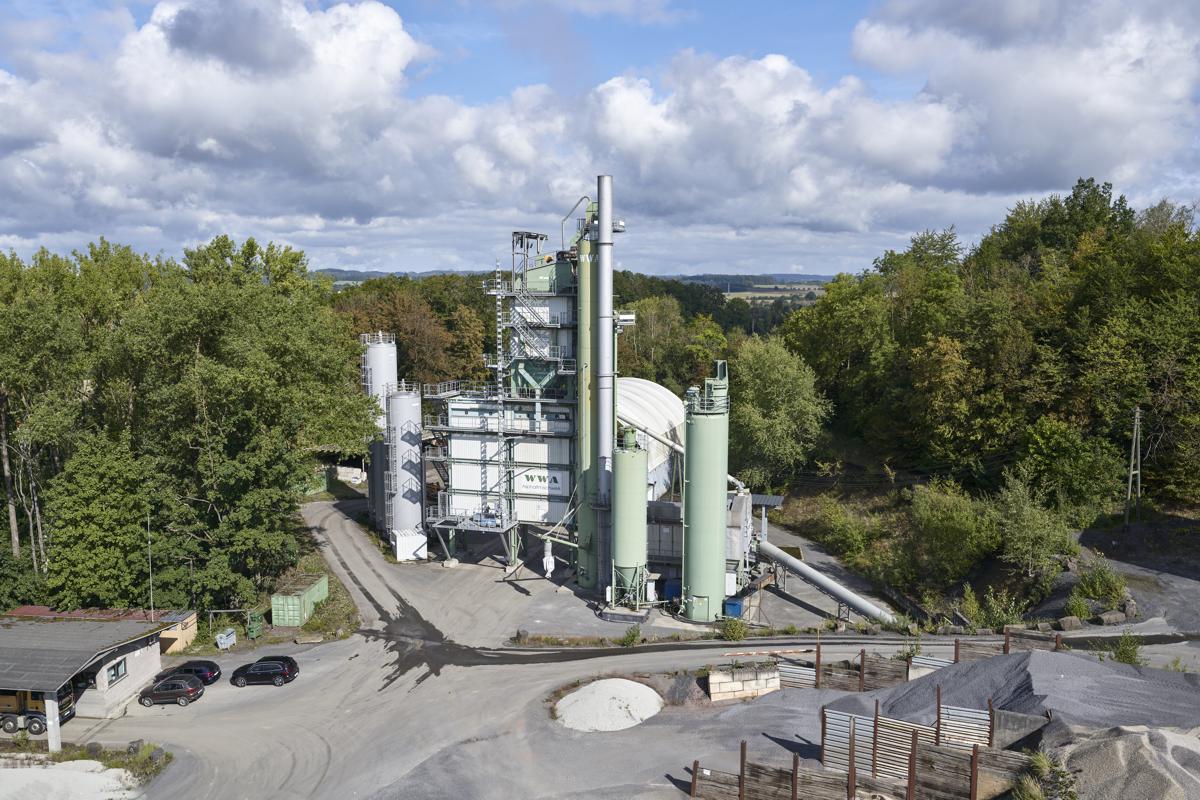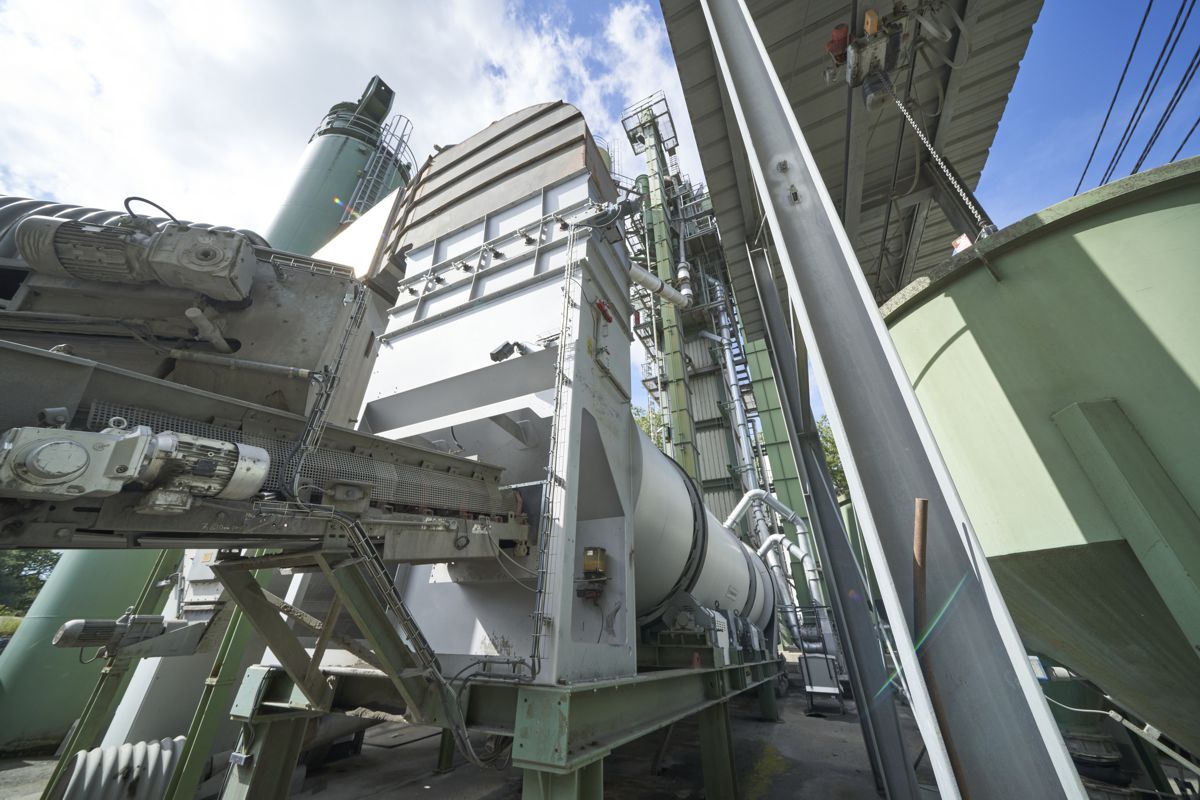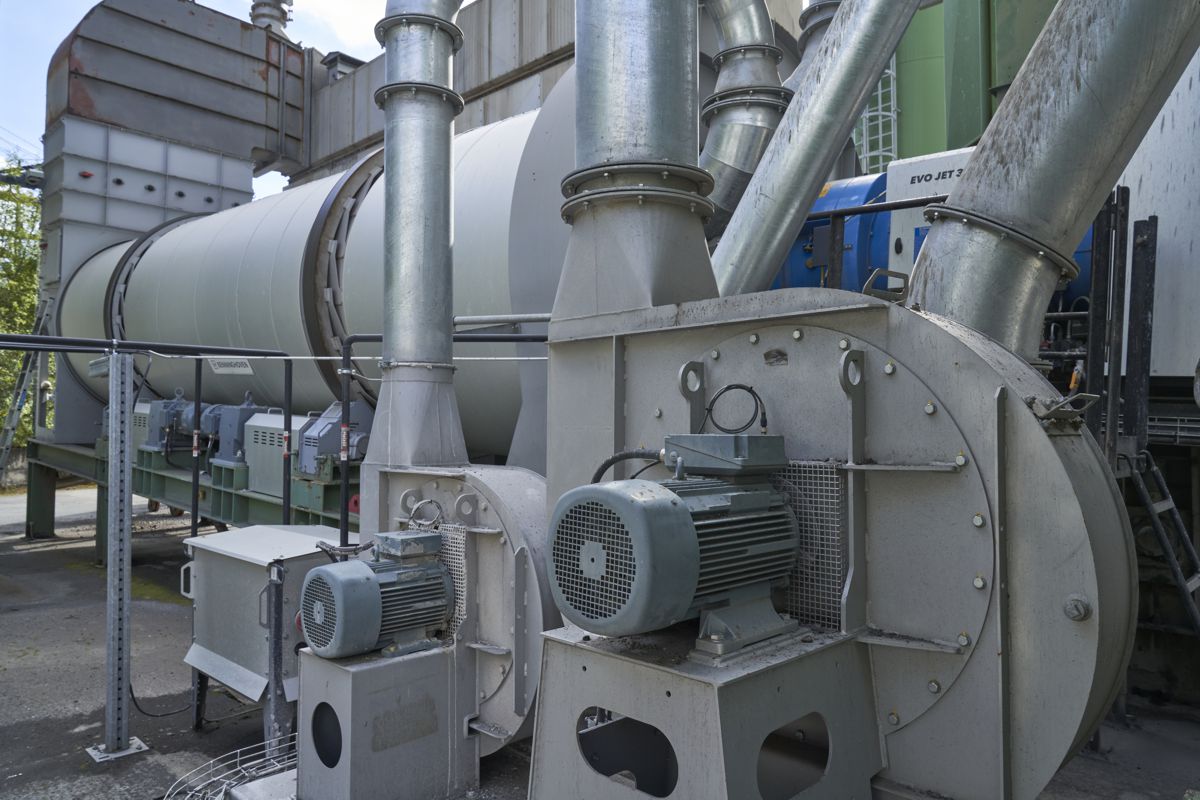Revolutionising Asphalt Production with Benninghoven’s REVOC System
When it comes to asphalt production, sustainability and compliance with stringent environmental regulations are more important than ever. In the midst of this, WWA Westerwald Asphalt GmbH & Co. KG in Nentershausen has emerged as a frontrunner.
With the installation of the cutting-edge REVOC system from Benninghoven, the asphalt plant has achieved remarkable results in reducing total carbon (TC) emissions by more than 50%. After debuting at bauma 2022, this “catalytic converter for asphalt mixing plants” has surpassed all expectations in practical application, leaving a lasting impression on industry insiders.
A Game Changer for Emissions and Recycling
The REVOC system is nothing short of revolutionary. Designed to significantly lower emissions and boost recycling rates, it offers an eco-friendly, resource-efficient solution for asphalt production plants. For Peter Bach, Managing Director of WWA Westerwald Asphalt, the decision to pioneer this technology was a no-brainer. He explained: “We chose the REVOC system because it allows us to reliably comply with the TC limits, even with a high content of recycled material.” And the results speak for themselves.
With the REVOC system, the plant has successfully increased its use of reclaimed asphalt, raising it from 30-40% to 50%, while cutting emissions by more than half. This dual benefit has made the installation a crucial investment, not only for the company’s bottom line but also for its long-term sustainability and regulatory compliance.

The Asphalt Plant Behind the Innovation
WWA Westerwald’s asphalt plant, a Benninghoven type TBA model installed back in 2007, is situated on a basalt quarry site. It produces 80,000 to 100,000 tonnes of high-quality asphalt mixture annually, primarily for road and path construction. The longstanding relationship between WWA Westerwald and Benninghoven played a key role in the plant’s readiness to embrace new technology. When the opportunity arose to retrofit their plant with the REVOC system, they were quick to accept, recognising the potential to lead the way in sustainable asphalt production.
But what does this mean in practical terms? In an industry where reducing emissions and increasing recycling content can seem like opposing goals, the REVOC system brings harmony to these two critical aspects.
Balancing High Recycled Content with Lower Emissions
Sustainable asphalt production hinges on two primary factors: the ability to increase recycled content and the need to reduce emissions. With rising environmental concerns, using reclaimed asphalt isn’t just a good idea—it’s a necessity. Adding recycled materials reduces the need for fresh bitumen, which, in turn, lowers the overall carbon footprint. But the challenge has always been maintaining compliance with strict emissions limits, particularly those outlined in the German TA-Luft regulation, which mandates TC emissions below 50 mg/m³.
In the past, increasing the content of reclaimed asphalt often resulted in higher TC emissions. This is because heating the bitumen in recycled materials releases volatile organic compounds (VOC) into the atmosphere. These compounds are not only harmful to human health at high concentrations but also have a greater greenhouse effect than carbon dioxide (CO₂).
Enter the REVOC system. By tackling these challenges head-on, it has made it possible to combine high recycling rates with drastically reduced emissions. With this innovation, TC emissions have been cut by up to 50%, while the plant can safely process reclaimed asphalt at rates as high as 60%. This is no small feat and represents a significant leap forward in the industry’s ability to meet environmental regulations without sacrificing production efficiency.

The REVOC System: How It Works
The beauty of the REVOC system lies in its simplicity and effectiveness. Functioning much like a catalytic converter, the system captures vapours directly from the mixing chamber—where the recycled asphalt is heated—before they can escape into the environment. These vapours are then thermally processed, which reduces their carbon content and ensures that emissions limits are not breached.
In addition to the environmental benefits, the REVOC system brings substantial economic advantages. By increasing the percentage of recycled materials used, the plant can cut down on its consumption of virgin raw materials, saving both resources and costs.
Moreover, for existing plants, the REVOC system offers a highly efficient retrofit solution. It doesn’t require major structural changes, making it a cost-effective option for upgrading older plants to meet today’s stringent environmental standards. Peter Bach summed it up perfectly: “We are very satisfied.”
Confirmed Results and a Bright Future
One year after the initial discussions began, the REVOC system was up and running at WWA Westerwald. From the outset, the system has exceeded expectations, delivering greater-than-anticipated reductions in emissions. Close monitoring, including regular emissions testing and fine-tuning of the plant’s operations, has demonstrated a consistent and reliable performance.
External measurements have verified these findings, reinforcing the REVOC system’s ability to operate well within the required emissions limits. In fact, even if these limits are tightened in the future, WWA Westerwald Asphalt is already well-prepared to comply.

A Retrofit for Older Plants: Securing the Future
For owners of older asphalt plants, the REVOC system presents a valuable opportunity. Not only does it improve plant performance and reduce emissions, but it also future-proofs the plant against increasingly strict regulations. As environmental standards continue to evolve, plant owners need solutions that can keep pace with these changes.
The REVOC system does just that, offering a robust solution for compliance with both current and future emissions regulations.
Benninghoven’s Revolutionary Technologies
Benninghoven has long been at the forefront of asphalt production technology, with a portfolio that spans recycling systems, combustion technology, control systems, and bitumen technology.
Their commitment to innovation is evident in the development of the REVOC system, which is part of a holistic approach to emissions reduction. To truly optimise the environmental performance of an asphalt plant, every element of the process must be finely tuned—from the burner to the fuel and from the recycling feed systems to the dryer drum.
The REVOC system exemplifies this integrated approach, offering a complete process solution that ensures compliance with even the most stringent environmental standards. By perfectly coordinating these various components, Benninghoven has developed a system that not only meets but exceeds regulatory requirements.

A Forward-Looking Investment
Ultimately, the REVOC system is much more than just an emissions control technology—it’s a strategic investment in the future. For plant owners looking to stay competitive in an industry that’s increasingly focused on sustainability, it offers a proven solution for reducing emissions while increasing the use of recycled materials.
As governments around the world continue to tighten environmental regulations, technologies like the REVOC system will become indispensable for ensuring both the long-term viability and profitability of asphalt production plants.




























